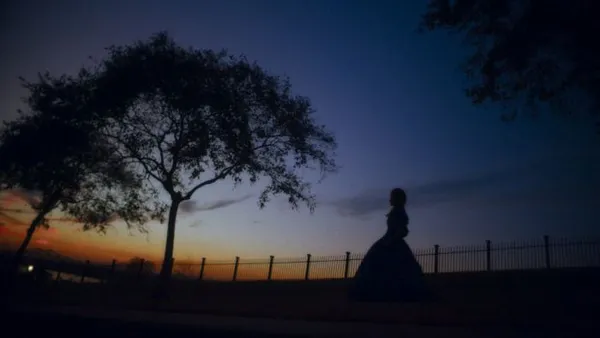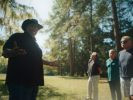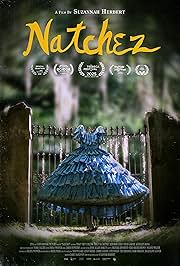Eye For Film >> Movies >> Natchez (2025) Film Review
Natchez
Reviewed by: Amber Wilkinson

“Behind the big house is the rest of the story,” says one of the contributors to Suzannah Herbert’s intelligent and observant documentary, which was a deserving winner of the Best Documentary award at Tribeca and plays at Sheffield DocFest. Narratives and who controls them are a part of what might be viewed as a civilised war in Natchez, Mississippi. Its complex history saw it boast one of the United States’ first Black mayors but during the antebellum era, its prosperity and imperious townhouses were built on slavery. Now in those well-appointed mansions, many of the descendants of those who profited handsomely from enslavement offer tours and tales of the “old south” that are as carefully polished as their glassware and “turtle forks”.
Herbert follows one of the current owners, David Garner as he guides tours of his house that have been part and parcel of the town since the collapse of the cotton industry saw the white southern belles use their Garden Club as a tourist magnet, selling “pilgrimages” around their homes and gardens. A slight elderly gentleman who uses a microphone to compensate for problems brought on by Parkinson’s disease, David, who is a proud member of the LGBT+ community, initially presents as a master storyteller who peppers his reminiscences with waspish gay asides. Beyond the narratives he elides or dodges he also becomes a classic reminder that being part of one minority and often abused community does not make you immune from your own prejudices.

Outside the houses, Black pastor Tracy “Rev” Collins offers a much more comprehensive guide to the history of the area. Like David, Rev has the patter down pat but he avoids the nostalgic gloss of the garden tours in favour of talking about Forks Of The Road – once the second biggest slave market of the Deep South, with hundreds of thousands of enslaved people forced to walk about 1800 miles in shackles there to be traded. There’s a sense of the whole town reaching a fork in the road of history of a sort too, as younger generations cool on the idea of Scarlet O’Hara cosplay in favour of more rounded and truthful histories. Takings at those big houses are down, but the old guard are highly resistant to change.
Herbert joins those who have been pushing for that for a long time, including Ser Boxley, who has spent his life advocating for Black history and Debbie Cosey, the first Black member of the Pilgrimage Garden Club. Bringing home the magnetism of nostalgia is Tracy McCartney, who was not “to the manor/manner born” but who married in and loves dressing up in hoop skirts but who, due to personal circumstances, begins to educate herself through the course of the film.
Cinematographer Noah Collier deserves a lot of credit for keeping himself largely invisible so that people reveal themselves, while working with editor Pablo Proenza, Herbert smoothly brings together these facets so that a bigger picture begins to be formed. All are alive to the way a picture can paint a thousand words, so that when one of the white house owners says “all of the ladies worked for months and months and months” to get their gardens up to scratch for the tours, what we see are Black gardeners going about their business in the present era, reminding us of who would have really done the labouring. Meanwhile, over at Forks Of The Road, which is looking to expand its museum experience, a garage owner may initially claim he won’t sell his land because of the amount of money he is being offered but it soon becomes apparent it's the past or his own thinly veiled racism he doesn’t really want to deal with.
Politeness in the face of this sort of attitude is a hallmark of this film. Debbie, who shows people around the renovated slave dwelling she owns and offers a counterpoint to the likes of David’s whitewashed stories, is seen patiently trying to nudge one of the white mansion owners into the current era even as she is told how wonderful it is that she has such a different “story”.
This is just one of the many wilful ways, along with the use of terms like “servants” and “help” that the white residents try to avoid looking truth in the eye. Herbert’s film has a slow build that shows how easy it is to be wooed by cosy nostalgia but which also carries the hopeful suggestion that many who embark on these tours – in particular those we see given by the Rev – are open and willing to be educated. The willingness of Rev and Debbie to basically coax people down the road to truth is nothing short of heroic given the attitude they’re often up against and the careful pacing and restraint from Herbert and Proenza means that when certain masks fully slip, the result hits like a cup of iced tea to the face. A documentary that may be specific in terms of its community setting, it raises much wider issues about the importance of truth and history that extend well beyond the town boundaries of Natchez itself.
Reviewed on: 18 Jun 2025















